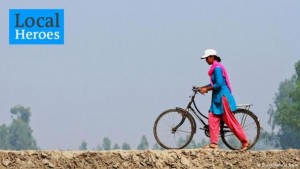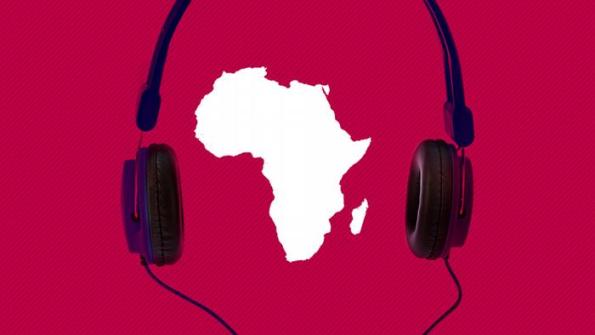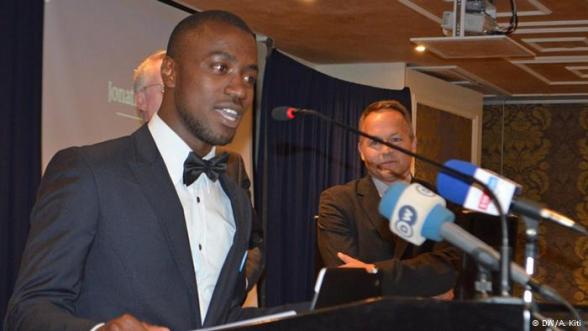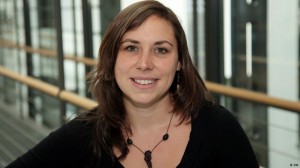Search Results for Tag: Kenya
Market roundup: August 2018
A DW political correspondent is appearing every week on Ugandan broadcaster NBS-TV’s news program “Live at 1” . With 10 million viewers, the channel is one of Uganda’s top-three most popular sources of news. NBS TV is part of Next Media Services, one of East Africa’s largest media companies. Also in Uganda, DW added Bunyoro Broadcasting Service as a new radio partner. The station based in Masindi will broadcast 15 minutes of AfricaLink and Crime Fighters every day.
In Kenya, Nyota TV is acquiring daily news broadcasts from DW along with the programs Arts21, Close Up and Eco@Africa. In Tanzania, DW has added new radio partners. Radio Uzima in Dodoma, Kahama FM in Kahama and Radio Furaha in Iringa are all rebroadcasting a selection of DW programming in Swahili.
Asia
One of Malaysia’s leading Pay TV channels, ASTRO, now includes DW’s English-language channel in its lineup. DW is available to 1 million subscribers of the OTT platform “Astro Go.”
In Myanmar, the Pay TV service “Forever Group,” which was recently bought by CANAL+, is broadcasting DW’s English-language channel across the country on IPTV and DHT.
DW’s broadcasting partner in Thailand, PSI, has acquired the DW programs Tomorrow Today, Global 3000, Drive It, In Good Shape and Euromaxx. PSI is available on the satellite Thaicom 5 and reaches 18 million households.
The Vietnamese cable provider HTV-TMS in Ho Chi Minh City is including DW’s English-language channel on ist OTT platform and on its website. HTV-TMS is available to 600,000 subscribers.
DW’s Local Heroes continue to shine
DW’s new English news channel was created for people all over the world who are looking for news and information that supports and inspires them to shape their communities. During the past few months, DW has searched for these local heroes, and at every point we have found and celebrated people who are doing remarkable things and making a difference.
Most recently in Ghana, DW and local broadcaster Joy News organized a “Heromobile”, which is travelling around the capital city Accra with local musicians and went looking for people who stand out, make a difference or work hard for change. DW and Joy News collected and shared their stories taking pictures of the participants and created an atmosphere of celebration.
Earlier this summer in Kenya, DW organized The Local Heroes Journalism Competition, which encouraged young journalists to create a journalism project profiling local heroes making a difference in their communities. The competition drew a lot of interest and promoted quality journalism while giving Kenyan local heroes the recognition they deserve.
 In Pakistan last month, speaking engagements in cooperation with local broadcasting partners honored local heroes and let them tell their story. Highlights from Pakistan included Samar Minallah Khan, documentary filmmaker and women’s rights activist who helped make the practice of forced marriage in Pakistan illegal. In Bangladesh, DW has honored Infoladies, who bike hundreds of miles to bring advice and medicine to thousands in remote, impoverished villages. There are currently around 70 Infoladies working mainly with women and girls as well as with disabled and elderly people, connecting them to the rest of the community.
In Pakistan last month, speaking engagements in cooperation with local broadcasting partners honored local heroes and let them tell their story. Highlights from Pakistan included Samar Minallah Khan, documentary filmmaker and women’s rights activist who helped make the practice of forced marriage in Pakistan illegal. In Bangladesh, DW has honored Infoladies, who bike hundreds of miles to bring advice and medicine to thousands in remote, impoverished villages. There are currently around 70 Infoladies working mainly with women and girls as well as with disabled and elderly people, connecting them to the rest of the community.
In an online call to action over the summer, DW asked people from anywhere in the world to submit the story of their local hero. Facebook posts on both DW News and 12 websites from DW’s various Asia and Africa departments combined to help draw attention to the new channel and encouraged people to share interesting stories of their local heroes with DW. The campaign was received with a lot of enthusiasm by online users. The various local hero stories complied by the participating DW editorial departments generated over 1 million reactions. The language groups that showed the most interaction with online posts were Dari, English and Bengali.
DW has shown that local heroes come from everywhere and anyone who has a vision and passion can make a difference in their communities – and there are always more stories to tell.
DW adds a new dimension to cooperating with African media
Across Africa from Kenya to Nigeria, a new media-savvy generation is emerging along with a new demand for opportunity, development and quality journalism. By reaching out to individuals, creating new partnerships and actively encouraging media development, DW has created a foundation for success in different African markets, while at the same time giving value back.
By adding value to partnerships and cooperating with local media in different regions, DW can help improve people’s lives with information and help set examples of transparency, legitimacy and professionalism in media.
DW’s international media development organization, DW Akademie, is very active in Africa and has been for over 50 years. DW Akademie’s first international project was a radio training program in Rwanda. Their newest initiative is a recently-signed partnership with Aga Khan University Graduate School of Media and Communications (AKU-GSMC) in Nairobi, Kenya.
The university is focused on developing media professionals for the Kenyan media market. DW is there to help guide and educate them with world-class standards of journalistic practice. In return, DW will gain valuable insight into the nuances of the local media landscape. The six-year agreement centers on the development of professional education and training standards for communications experts in East Africa. Through exchanging experience, competences and ideas, both sides will benefit. DW gains visibilty in an important media market and the courses at AKU-GSMC can improve and develop with the expertise and experience provided by DW Akademie.
Kenya is one of the quickest growing media markets in Africa and there is a burgeoning interest in media education amongst young Kenyans. The market is growing more competitive and innovative.
DW recently produced a journalism competition for young journalists in Kenya. They were asked to create a journalism project that profiled a local hero in their region. Local heroes are people who make a difference in their communities and help those around them. The competition was organized in cooperation with The Standard Group, which is the largest media company in Kenya. The competition showed how through cooperating with partners, DW can affect the lives of people in African target audiences while gaining valuable partners and a positive local image.
Nigeria is another important market for DW in Africa. DW has been expanding its presence in the region after adding two foreign correspondents last year in Lagos and recently signing a deal with Channels TV, the largest news broadcaster in Nigeria. The deal includes direct DW reports from the Frankfurt Stock Exchange produced exclusively for audiences in Nigeria. This example of coproducing and sharing technical capacity is a model for the future of how DW will provide international quality journalism to local audiences.
Programs like Focus on Africa and Crossroads Generation emphasize individuals who help to set examples and serve as role models. They provide examples that turn away from the image of the continent as only being beset by turmoil and focus on positive actions from a younger generation.
DW will succeed in African markets by working with partners, reaching people where they are, educating media professionals and promoting journalism education. These are all very positive steps with the consistent goal to improve the overall media landscape in African countries.
Let’s get high-quality information to low-tech devices in Africa
Annelie Moreira Da Silva, DW Distribution Representative for Africa
Smartphones are fast becoming the standard tool for consuming news and information, but for many people in developing and emerging countries, this technology is still out of reach. It is estimated that out of the total 5 billion mobile users worldwide, only 1 billion are using smartphones. The remaining number represents a majority of people in emerging and developing countries who are using 2G or “feature phones” for mobile Internet access.
DW works hard to provide top-quality news and information to people in hard to reach places. In emerging markets such as in Africa, expensive Internet and mobile technology makes smartphones a luxury that few can afford. Most people try to use their feature phones to access valuable social networks and online news which usually demands a higher level of data processing than these devices can provide – but there are some solutions.
A innovative platform called biNu is providing a way for feature phones to efficiently navigate the web. And since June, DW has been cooperating with biNu to provide feature phone users in Africa with easy access to DW’s high-quality online news content.
The biNu app provides high-end functionality by turning feature phones with a basic Internet connection into “virtual smartphones.” It achieves this by using cloud networks to process and compress data from websites allowing the end result to be easily used via a feature phone. The result of using a cloud platform to streamline data is a service that is 10 times faster than a standard mobile browser while requiring 10 times less bandwidth. The displays are simplified and optimized for a feature phone and the most important elements of the website are passed on to the user.
The service already has more than 900,000 users in Africa, mostly located in fast-growing media markets like Nigeria, Kenya, South Africa and Ghana but also in countries like Zimbabwe and Ethiopia where, because of the difficult political climate, are harder for international media to access.
Even as infrastructure improves, the low cost of feature phones and continually expensive network and Internet access means that many people in these developing countries will continue to use their mobile phones as the primary device for going online. Providing them with easily accessible news, information and social networks is a hugely important task. Through cooperating with biNu, DW can overcome the disparity in international technological standards and provide information that people need on the device that they prefer.
DW Akademie helps journalists protect their data
It is becoming a dangerous digital world out there with everything from hackers phishing for passwords to governments spying on communications. Journalists are often in possession of very sensitive information and there is the persistent danger of it falling into the wrong hands. Learning how to securely save and transfer information has therefore become vital to the skill set of modern journalists.
DW is on the front line in the fight for digital security. This week, DW Akademie is hosting free online workshops about Digital Safety for Journalists, in cooperation with Reporters Without Borders. The seminar is open to everyone interested in learning more about Internet security and consists of six sessions held by digital safety experts and journalists.
Some of the experts include Ala’a Shehabi an activist and journalist based in Bahrain, Anne Roth from Tactical Tech, an NGO that works on digital security for activists and Morgan Marquis-Boire, a digital security researcher and technical advisor. You can explore the issues on the community page which will be continuously updated and you can follow the sessions on Twitter at @dw_akademie and #digisafe. Don’t miss out, register now for the seminar and learn how to protect yourself online.
What will the future look like for the silicon savannah?
DW Akademie is also currently accepting proposals for papers to be presented at the fifth Deutsche Welle Media Dialogue in May. The topic this year addresses different social and structural challenges affecting the media in Kenya. Media academics, political scientists, economists, academic lawyers and journalists can register online to join the symposium and upload their proposals. The deadline for submissions is January 31, 2014.
The symposium will be held in two parts. The first session will cover media legislation and media ownership in Kenya with a look at the current media landscape and what developments are to be expected. The second session will look at journalistic standards and ethical practices with an extra focus on election coverage. The development of communication technology in Kenya has been seen as an African success story. The next step will be to ensure that the information being shared on the new networks meets journalistic standards. The symposium and presentations will be in English.












Feedback